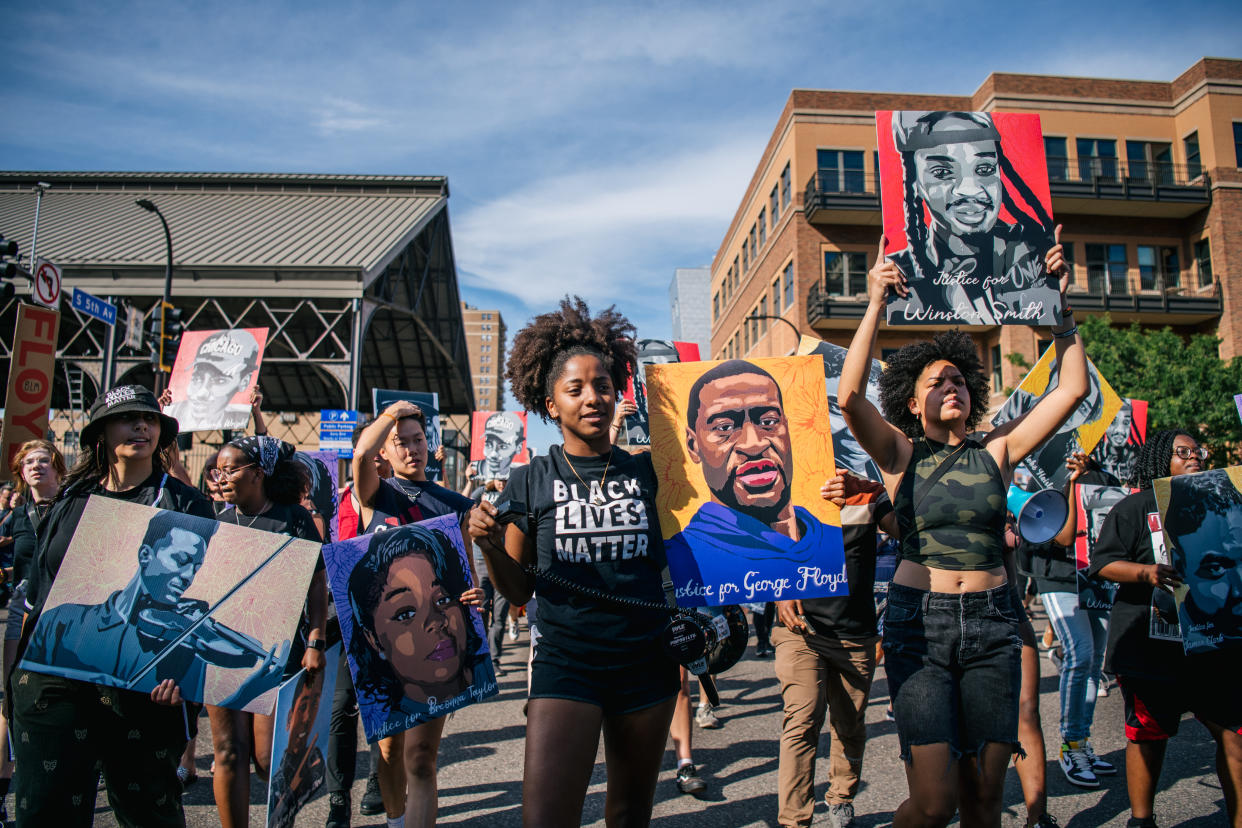Op-ed: NBA Social Justice Coalition director calls for passage of federal policing reform legislation

I am the executive director of the National Basketball Social Justice Coalition, which leads the NBA family’s advocacy work. But, in 2014, I was managing the policy portfolio of the Civil Rights Division at the U.S. Department of Justice when Michael Brown, an unarmed Black teenager, was shot and killed by a police officer in Ferguson, Missouri.
My colleagues back then, the formidable civil rights prosecutors of DOJ, sprang into action. Their investigation not only revealed the tragic circumstances of the shooting, but also the history of misconduct within Ferguson PD: stark racial bias in arrest patterns, egregious fines and fees the department had overburdened on the city’s Black residents and other systemic issues that have plagued too many police departments across the country for decades.
When the Ferguson grand jury declined to indict the officer, communities and people from all walks of life — including athletes in the NBA, WNBA and across sports — stood up and spoke out, using any platform they had to voice their frustration and outrage.
Today, Daunte Wright, George Floyd, Breonna Taylor and Jacob Blake are just the latest lives we remember that have been lost to or impacted by police violence. And while investigations by those dedicated federal civil rights lawyers I used to work alongside remain essential, most observers agree that we need more: that prosecution after the fact is no substitute for prevention; and that accountability comes much too late for justice.
The police killings of 2020 rightfully touched off one of the largest and loudest movements for systemic reform and racial justice we have seen in our country’s history, echoing across all sectors of a society already stricken by the COVID-19 pandemic. And in our leagues, players, coaches and teams again grappled with the same question as the rest of us: What can each of us do right now?
That well-documented moment of reflection and dialogue in the NBA community and in other sports opened a new chapter in the long history of advocacy within athletics that runs from Muhammad Ali and Billie Jean King to John Thompson and Venus Williams; from Arthur Ashe and Kareem Abdul-Jabbar to Megan Rapinoe and Maya Moore. It led the NBA to create the National Basketball Social Justice Coalition: the new advocacy arm of our broad community. And police reform is the Coalition’s first priority.
Six weeks ago, on the anniversary of Mr. Floyd’s murder, our Coalition endorsed the George Floyd Justice in Policing Act, which is currently under bipartisan negotiations in Congress. Recent public reporting suggests that lead negotiators Sen. Cory Booker (D-N.J.), Sen. Tim Scott (R-S.C.) and Rep. Karen Bass (D-CA) are close to a bipartisan deal that significantly enhances federal police accountability mechanisms and misconduct transparency, while also investing in public safety.
Progress matters. So does the process. The final outcome of these negotiations will not fully resolve the deep, complex policing problems we face in our country. No single piece of legislation could. Our policing practices and norms are deeply intertwined with questions about how we invest in other interdependent public systems, including crisis response, housing, health care, education, and many more. But this is the first time in a generation that Congress has a chance to pass major, potentially transformative police reform legislation and get it signed into law.
Like the American public, the NBA community our Coalition represents is diverse, and we hold a wide range of perspectives on every issue. And just like the American public, we remain united in our belief in equal justice under the law. We need real federal policing reform legislation to pass. This may be our best chance.
James Cadogan is executive director of the National Basketball Social Justice Coalition, which leads the NBA family’s collaborative efforts to address racial and social inequality. Cadogan is a former senior official in the Obama administration, serving at the U.S. Department of Justice from 2012-17 as counselor to the attorney general of the United States, and as senior counselor and director of policy and planning in the Civil Rights Division.
More from Yahoo Sports:
